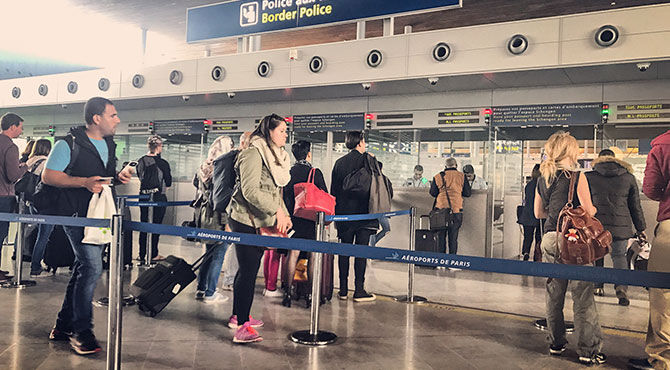May eyes free movement changes during transition
Prime Minister Theresa May has announced plans to register new arrivals from the EU during the transition period. Ensuring businesses continue to have a flow of skilled labour has been viewed as essential.

 18 December 2017
18 December 2017EU expects unrestricted movement throughout transition
Although the EU has made it clear it expects the UK to observe all of its rules – including unrestricted freedom of movement – during the transition, Mrs May told the House of Commons “during this period we intend to register new arrivals from the EU as preparation for our future immigration system”.Her announcement came in the wake of a warning from the Labour Party that businesses, the health service and education system would be left in a “terrible position” if Brexit meant the end of the flow of skilled workers coming from Europe.Related stories:
- More finance firms committed to Brexit relocations
- Brexit deal reached on EU expats in Britain
- Businesses breathe sigh of relief after Brexit breakthrough
Business concerns over drop in EU based immigration
Diane Abbott, the shadow home secretary, said the government must listen to concerns from business and the public sector over a “collapse” in the number of EU migrants moving to the UK.She told the BBC’s Andrew Marr Show, “The health service (is) very worried about a collapse in the number of EU migrants coming here. Social care would be in a terrible position, the health service, finance, education, so we will be listening as the government should be listening to what business and the public sector says about its needs for labour.“At this point both business and public services like health and education are saying we do indeed need these eastern European migrants that are coming here.“The reality is that business, the CBI, the Institute of Directors but also health, education and social care they say that they need these European migrants and we have to listen to them.”Questioned about a call from Sir Keith Starmer, the shadow Brexit secretary, for “easy movement”, Ms Abbott said Labour wanted to see a “fair and reasonable” system to manage migration. “It will be relatively less bureaucratic than some of the proposals the government have made,” she said.“We will have to see how this negotiation goes. It may involve a visa system, but we have to see how these negotiations the government’s undertaking go.”UK plans to set up new system during transition
In her Commons speech, Mrs May said that, during a “strictly time-limited implementation period”, the UK would not be part of the single market or the customs union.“But,” she added, “we would propose that our access to one another’s markets would continue as now, while we prepare and implement the new processes and new systems that will underpin our future partnership.”The prime minister said the UK would seek to sign trade deals with other, non-EU countries once the country has left the bloc in March 2019, even though Brussels is saying that during any transition period, the UK would have to comply with the bloc’s trade policy, which prevent the striking of deals with other countries.But Mrs May said, “We will prepare for our future independent trade policy by negotiating – and where possible, signing – trade deals with third countries, which could come into force after the conclusion of the implementation period.”In an interview with the Sunday Times, Foreign Secretary Boris Johnson said, “What we need to do is something new and ambitious, which allows zero tariffs and frictionless trade but still gives us that important freedom to decide our own regulatory framework, our own laws and do things in a distinctive way in the future.”He said that if Britain were forced to mirror EU laws after Brexit, “we would have gone from a member state to a vassal state”.Read more about the future of industry in the Winter issue of our magazine.
For related news and features, visit our Enterprise section. Look out for the launch of 2018's Relocate Awards, entry open in January.Relocate’s new Global Mobility Toolkit provides free information, practical advice and support for HR, global mobility managers and global teams operating overseas.
 Access hundreds of global services and suppliers in our Online Directory
Access hundreds of global services and suppliers in our Online Directory
©2025 Re:locate magazine, published by Profile Locations, Spray Hill, Hastings Road, Lamberhurst, Kent TN3 8JB. All rights reserved. This publication (or any part thereof) may not be reproduced in any form without the prior written permission of Profile Locations. Profile Locations accepts no liability for the accuracy of the contents or any opinions expressed herein.






































